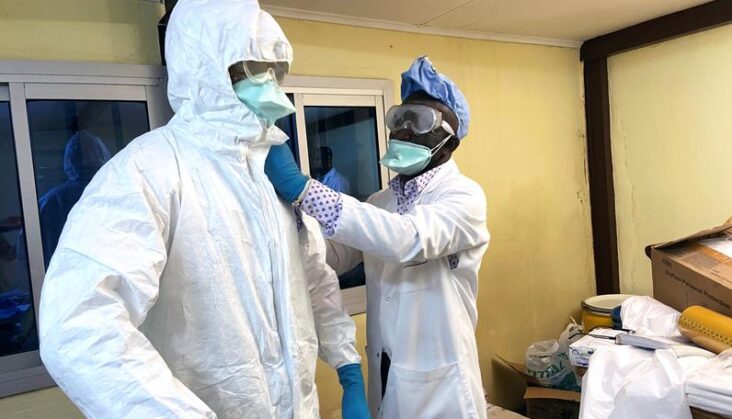The number of Covid-19 infections and deaths has continued to decline with only an average of 124 cases and 6 deaths being reported per day, according to the Ministry of Health.
Statistics from the Health ministry indicates that at the peak of the Covid-19 second wave in June this year, the country registered as high as 1,445 cases per day and 57 virus deaths were being registered daily.
This implies a 91 percent decline in Covid-19 cases and 89 percent decline in pandemic-related deaths when compared three months ago, in June.
Health Minster Ruth Aceng yesterday said that although there is a general decline in Covid-19 numbers, some regions are registering increased transmission. She said the threat of third wave of the pandemic is imminent.
“While the country continues to register a consistent drop in the number of confirmed cases since the peak of the second wave in June 2021, we are not yet where we were at the beginning of the second wave,” she said.
The country is still in the second wave.
Dr Aceng said in their analysis, “more females have been infected with Covid-19 in the second wave than males” unlike in the first wave. She didn’t give figures.
She said the high Covid-19 infection rates among women are because they are the majority who attend burials and go to public places, linking the practice to increased risk of contracting the infections.Close
“In the last months of September and October, three regions have been registering increasing numbers of confirmed cases and an increase in the number of affected districts in these regions. This points to a resurgence and these districts are being followed up very closely as hotspot areas,” she added.
The hotspot districts include Kampala city in central Uganda; Soroti, Katakwi, Ngora, Kalaki in Teso sub-region; Amuru, Gulu and Nwoya in Acholi sub-region; and, Oyam District in Lango Sub-region.
The increased transmission, Dr Aceng said, is being driven by “mass gathering” at burials and weddings, congestion at city centres and failure to follow Covid-19 preventive measures.
Other drivers of the pandemic spread include weekly markets where people interact, drink alcohol after the market day alongside use of local remedies that created “false sense of security and delayed seeking of care at the health facilities”, according to the minister.
Since Uganda registered its index Covid-19 case in March 2020, the virus has claimed a total 3,179 out of 124,864 infected people while 96,321 patients beat the virus and recovered.
There are currently 239 Covid patients in admission across the country, the ministry said, while 25,000 are undergoing home-based care.
Dr Aceng said 61 percent of those who died in Covid-19 treatment units had comorbidities such as hypertension, diabetes, and HIV. Source: All African Global Media
